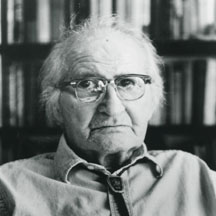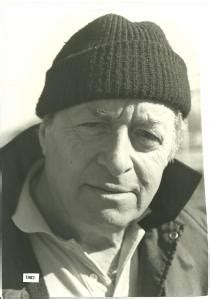A Quote by William Faulkner
The writer's only responsibility is to his art...If a writer has to rob his mother, he will not hesitate; the 'Ode on a Grecian Urn' is worth any number of old ladies.
Related Quotes
The writer's only responsibility is to his art. He will be completely ruthless if he is a good one. He has a dream. It anguishes him so much he must get rid of it. He has no peace until then. Everything goes by the board: honor, pride, decency, security, happiness, all, to get the book written. If a writer has to rob his mother, he will not hesitate; the 'Ode on a Grecian Urn' is worth any number of old ladies.
Always dream and shoot higher than you know you can do. Don't bother just to be better than your contemporaries or predecessors. Try to be better than yourself. An artist is a creature driven by demons. He don't know why they choose him and he's usually too busy to wonder why. He is completely amoral in that he will rob, borrow, beg, or steal from anybody and everybody to get the work done. The writer's only responsibility is to his art.
Detach the writer from the milieu where he has experienced his greatest sense of belonging, and you have created a discontinuity within his personality, a short circuit in his identity. The result is his originality, his creativity comes to an end. He becomes the one-book novelist or the one-trilogy writer.
I always give my students exercises where they really have to open a vein and bleed all over the paper and that's the way you get the important characters. Sooner or later every writer worth reading writes a story his mother wouldn't read and having to get that stuff out is part of one's growth as a writer.
The writer walks out of his workroom in a daze. He wants a drink. He needs it. It happens to be a fact that nearly every writer of fiction in the world drinks more whisky than is good for him. He does it to give himself faith hope and courage. A person is a fool to become a writer. His only compensation is absolute freedom. He has no master except his own soul and that I am sure is why he does it.
Constant work, constant writing and constant revision. The real writer learns nothing from life. He is more like an oyster or a sponge. What he takes in he takes in normally the way any person takes in experience. But it is what is done with it in his mind, if he is a real writer, that makes his art.
I say "on principle" [regarding 'lesbian writer'] because whenever you get one of your minority labels applied, like "Irish Writer," "Canadian Writer," "Woman Writer," "Lesbian Writer" - any of those categories - you always slightly wince because you're afraid that people will think that means you're only going to write about Canada or Ireland, you know.
The writer is a spiritual anarchist, as in the depth of his soul every man is. He is discontented with everything and everybody. The writer is everybody's best friend and only true enemy-the good and great enemy. He neither walks with the multitude nor cheers with them. The writer who is a writer is a rebel who never stops
I'm a situational writer. You give me a situation, like a writer gets in a car crash, breaks his leg, is kidnapped by his number-one fan, and is kept in a cabin and forced to write a book - everything else springs from there. You really don't have to work once you've had the idea. All you have to do is kind of take dictation from something inside.
The Tiger Rising is, again, about a motherless child. His name is Rob Horton. He is dealing with the death of his mother, when he and his father move to a new town. And two things happen the same day that Rob gets sent home. One is he meets a girl named Sistine Bailey, who is what my mother would call "a piece of work," and he finds a real tiger in a cage in the woods behind the motel where he lives with his dad. And that's the story: what happens with the Sistine tiger, the real tiger and Rob's grief.
It is only the basest writer who cannot speak of the sea without talking of "raging waves," "remorseless floods," "ravenous billows," etc.; and it is one of the signs of the highest power in a writer to check all such habits of thought, and to keep his eyes fixed firmly on the pure fact , out of which if any feeling comes to him or his reader, he knows it must be a true one.
Unless a writer lives with a periodic delusion of his greatness, he will not continue writing. He must believe, against all reason and evidence, that the public will experience a catastrophic loss if he does not complete his novel. The public is just clamoring to give him his fame. From the book Dare to be a Great Writer: 329 Keys to Powerful Fiction by



































